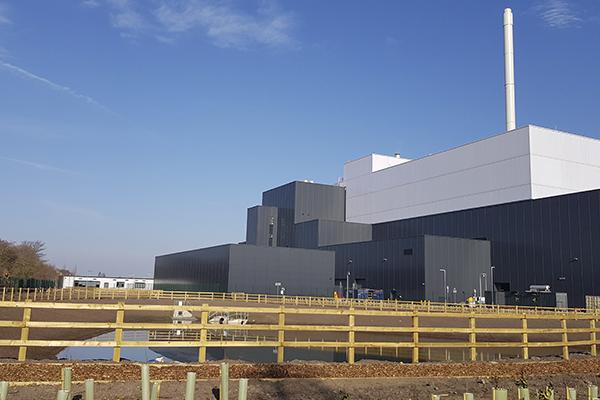FCC Environment starts full operation at Millerhill Recycling and Energy Recovery Centre, near Edinburgh
FCC Environment starts full operation at Millerhill Recycling and Energy Recovery Centre, near Edinburgh

Quite ahead of programme, the Recycling and Energy Recovery Centre (RERC) of Millerhill (Midlothian), developed by FCC Environment, has now entered full operation.
The new state-of-the-art energy from waste plant, which will serve the City of Edinburgh and Midlothian, commenced construction in October 2016 and has been receiving residual waste since October 2018 for commissioning purposes.
A further significant milestone was achieved in December 2018 with the generation of energy from the plant’s 13 MW turbine commencing.
The Millerhill RERC was developed jointly by City of Edinburgh and Midlothian Councils, in partnership with FCC Environment (UK), who signed a 25-year contract to deliver and operate the £142m plant in October 2016.
The plant has been constructed on a brownfield site, which is now barely recognisable as the former Millerhill Marshalling Yard, and It will treat around 135,000 tonnes of household residual waste and a further 20,000 tonnes of household and commercial waste every year. It will generate sufficient electricity to satisfy the energy demands of up to approximately 32,000 households. In conjunction with the Partner Councils, district heating proposals are being developed to take full advantage of the benefits arising from the energy-from-waste process.
A separate facility, which takes all of the food waste collected by the partner councils, is already in operation on the neighbouring site to the RERC. These new facilities will treat both food and non-recyclable waste, creating renewable energy in the process, will help both authorities to contribute to the national recycling target of 70% by 2025 and the national landfill diversion target of 95% by 2025.
In recent years, the environmental services area of the FCC Group has received important awards in the international arena. A few weeks ago the Houston (Texas) Material Recycling Facility (MRF), at the USA, started full operations. This plant will sort and revaluate the city's recyclable materials and will manage their subsequent sale, for a period of up to 20 years. The facility, with a throughput of up to 145,000 tons per year, has been designed, financed and built by FCC, and joins the new recycling plant in Dallas (Texas), which operates at full capacity and has been selected by the National Waste & Recycling Association (NWRA) as the Best Recycling Facility in North America. FCC Environmental Services, FCC’s American subsidiary, has been also awarded the contract for the collection of urban solid waste in Palm Beach County (Florida) with an order book value of US$ 215 million.
In the United Kingdom, FCC Environment recently reached commercial and financial close with the Danish fund Copenhagen Infrastructure Partners (CIP) to develop one of Europe's largest waste-to-energy facilities in Lostock, with a throughput of 600,000 tonnes per annum. The firm also won Northamptonshire Waste Collection and Road Cleansing contract, with an order book value of EUR 20 million. In Spain it is also worth noting that the company was awarded the contract for the second phase of the Environmental Complex of Guipúzcoa CMG-2, which will treat, recycle and recover energy from 102,000 tons/year of different types of waste over the next 20 years.
About FCC Environment
The FCC Group is a global leader in services for cities. The Environmental Services area of the company has been delivering municipal services for more than 100 years and has based its success on a commitment to innovation and helping cities to become smarter, more sustainable and more socially responsible. It currently serves almost 60 million people in nearly 5,000 municipalities in thirteen countries, with a network of more than 200 energy-recovery and recycling plants that process annually 24.5 million tons of waste as a resource, including eleven energy-from-waste (EfW) projects with a capacity of more than 3.2 million tons and 360 MW of non-fossil electricity.








